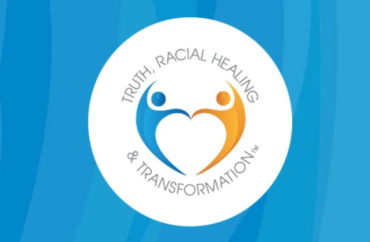
Education expert says there’s ‘no evidence’ such centers actually work
A Washington D.C.-based nonprofit is seeding new “racial equity” healing centers at colleges and universities across the United States, with about 20 new operations set to launch in the coming weeks to join the nearly 30 already planted over the last few years.
Called Truth, Racial Healing & Transformation Campus Centers, their main website asserts that the “effects of racism are evident in the social, economic and government policies all around us and the places in which we live, learn, work and play.”
Defining the underlying beliefs of racism as “deeply held, and often unconscious,” the website names specific examples of racial inequality, including criminal justice, mass incarceration and structured inequality in the workforce as problems to be examined and addressed by students and faculty.
Describing itself as a “force for liberal education,” the Association of American Colleges & Universities is the educational organization backing the effort with funding chiefly from the W.K. Kellogg Foundation, according to its GuideStar information.
The group on Oct. 7 announced 19 new centers will be established to bring the total to 48.
“We look forward to partnering with these pathbreaking institutions in their efforts to promote racial equity and healing on their campuses and in their communities,” AAC&U President Lynn Pasquerella stated in the news release. “We’re grateful to our funders for their commitment to ensuring that higher education plays a leadership role in advancing racial and social justice in our society.”
Among campuses set to open a center is Pepperdine University, considered more of a center-right campus by many. But J. Goosby Smith, Pepperdine’s chief diversity officer, said the center will fit right in.
“The four pillars of our work are institutional truth-telling, promoting healthy narratives and dialogue around race, facilitating community connection, and strengthening ties with local and Indigenous communities through transformative relationships,” Smith said in an Oct. 15 news release.
“We are thrilled to continue this work at Pepperdine with the support of AAC&U and the other TRHT campus centers.”
Another campus slated to open a racial healing center is Northern Illinois University.
“The goal of TRHT is to bring transformation and sustainable change within campus cultures and to address the historical and contemporary effects of racism and other -isms,” Jocelyn Santana, director of Social Justice Education, stated in a news release.
Marymount University, in announcing its center formation earlier this month, echoed similar sentiments. Its news release stated its focuses will include “prioritizing truth and reconciliation via the DEI Center” and “generating new support for undocumented students.”
The overall, nationwide initiative launched in 2017. According to the association, each center is designed to “break down racial hierarchies and dismantle the belief in the hierarchy of human value.”
The association states its goal is to eventually have 150 such centers integrated in educational institutions around the nation.
While the website paints a bright picture, policy experts aren’t so sure.
Jay Greene, senior research fellow in education policy at the Heritage Foundation, expressed doubt as to the academic value of such centers.
“This effort strikes me as more of a faith-based proselytizing project than an evidence-based educational one,” Greene told The College Fix. “There is no evidence that diversity programming of this type actually accomplishes the goal of improving racial relations.”
One center is at Queensboro Community College in New York City. CUNY Chancellor Félix Rodríguez lauded the move as vital to the college’s mission.
“CUNY is uniquely positioned to address the structural inequities and systemic racism that persist in our country and city,” Rodríguez said, adding “we will help our community start to heal.”
Greene, on the other hand, sees other consequences to this method of focusing on racial healing-styled diversity, noting that unlike “established religions, whose defining principles and rituals have been tested to work for centuries or millennia … It is unclear what TRHT does to add to these traditional efforts.”
“TRHT is more like a new age cult, inventing its dogma and rituals … that have not been tested by time and could be quite harmful to them or others.”
A list of all locations for the centers can be found here.
ALERT: Check out our Campus Cancel Culture Database
IMAGE: screenshot
Like The College Fix on Facebook / Follow us on Twitter






Please join the conversation about our stories on Facebook, Twitter, Instagram, Reddit, MeWe, Rumble, Gab, Minds and Gettr.